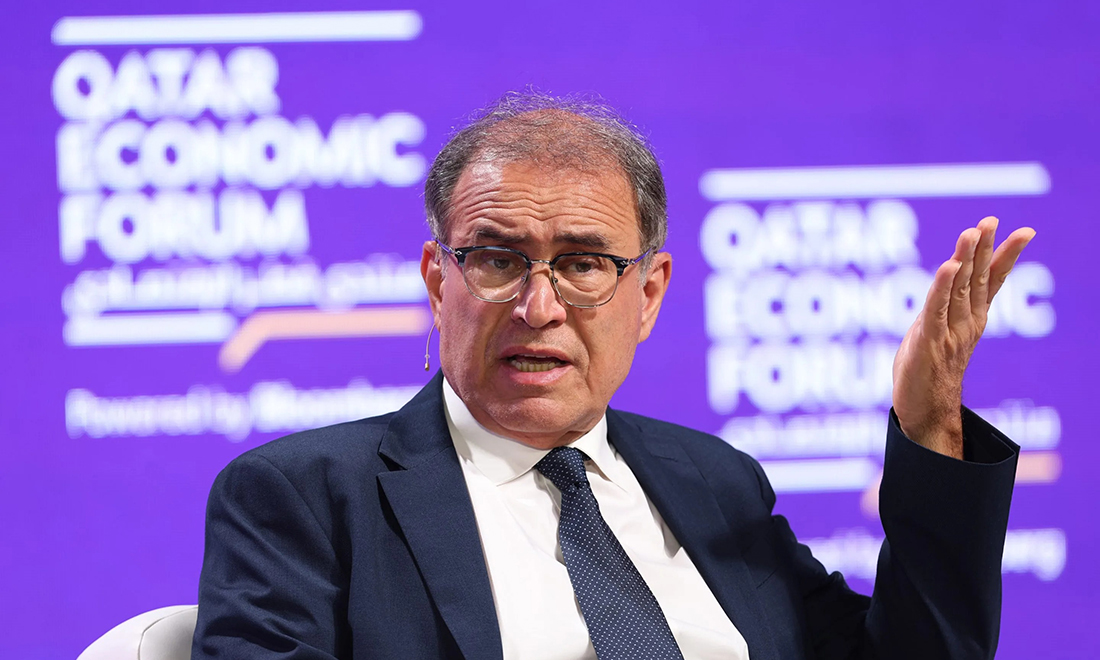
頂級經濟學家魯里埃爾·魯比尼(Nouriel Roubini)向所有在疫情期間搬到佛羅里達州的紐約人傳達了一條信息:就房地產投資而言,你應該選擇中西部。
魯比尼是紐約大學經濟學教授,也是Roubini Macro Associates首席執行官。他正確預測了2008年的金融危機,并因其悲觀的觀點而贏得了“末日博士”的稱號。
他預測美國將在年底前陷入嚴重經濟衰退,并稱任何仍然相信有望實現“軟著陸”的人是“癡心妄想”。他還警告說,未來將是“嚴重滯脹而不穩定”的時代,全球將在未來幾年出現“大規模破產和連環金融危機”。
他建議將房地產作為一種對沖通脹的手段,但他對氣候變化提出了警告。
周四在彭博社的Odd Lots播客中,他警告說:“由于全球氣候變化,許多房地產將陷入困境……人們從紐約搬到邁阿密,從舊金山搬到奧斯汀,這些做法非常愚蠢,這是因為佛羅里達州將被海水淹沒,德克薩斯州會太熱而無法在那里生存下去。”
在疫情最嚴重的時候,成千上萬的紐約人搬到了佛羅里達州,而且許多人繼續這樣做。
2021年7月,南佛羅里達州的房地產經紀人邦妮·希茨格(Bonnie Heatzig)對紐約WABC-TV說:“這些人搬到南佛羅里達州開始新生活,讓孩子在當地上學,開始新事業。這些人會留在這里。”
從長遠的角度看待佛羅里達州的房地產
但是,魯比尼在播客中說:“事實上,有地圖顯示,在未來20年里,美國一半地區要么將被海水淹沒,要么太熱、干旱或野火肆虐,無法在那里生存下去。”
他繼續說,“因此,將會有大量移民從南部和沿海地區遷移到美國唯一能在氣候變化中幸存下來的地區,也就是從中西部地區,基本上是加拿大。因此,全球氣候變化將導致數萬億美元的房地產資產受損。”
對于投資者來說,他仍然建議將房地產(盡管只在某些地方)與短期政府債券、通脹指數化債券、黃金和其他貴金屬一起作為“能夠對沖通貨膨脹、政治和地緣政治風險以及環境破壞的資產”。
他補充說,“只要貨幣政策不太緊縮,房地產就是對沖通脹的好手段。”當然,美聯儲一直在加息,這導致房地產投資信托(REITs)今年表現不佳。但他表示,美聯儲可能會因持續加息而“臨陣退縮”,鑒于此,“我認為房地產的表現將超過股票,因為它是一種固定供應類型的資產,這是在短期內會出現的情況。”
不過,考慮到氣候變化,“你必須在美國合適的地區找到投資類型。”他說。(財富中文網)
譯者:中慧言-王芳
頂級經濟學家魯里埃爾·魯比尼(Nouriel Roubini)向所有在疫情期間搬到佛羅里達州的紐約人傳達了一條信息:就房地產投資而言,你應該選擇中西部。
魯比尼是紐約大學經濟學教授,也是Roubini Macro Associates首席執行官。他正確預測了2008年的金融危機,并因其悲觀的觀點而贏得了“末日博士”的稱號。
他預測美國將在年底前陷入嚴重經濟衰退,并稱任何仍然相信有望實現“軟著陸”的人是“癡心妄想”。他還警告說,未來將是“嚴重滯脹而不穩定”的時代,全球將在未來幾年出現“大規模破產和連環金融危機”。
他建議將房地產作為一種對沖通脹的手段,但他對氣候變化提出了警告。
周四在彭博社的Odd Lots播客中,他警告說:“由于全球氣候變化,許多房地產將陷入困境……人們從紐約搬到邁阿密,從舊金山搬到奧斯汀,這些做法非常愚蠢,這是因為佛羅里達州將被海水淹沒,德克薩斯州會太熱而無法在那里生存下去。”
在疫情最嚴重的時候,成千上萬的紐約人搬到了佛羅里達州,而且許多人繼續這樣做。
2021年7月,南佛羅里達州的房地產經紀人邦妮·希茨格(Bonnie Heatzig)對紐約WABC-TV說:“這些人搬到南佛羅里達州開始新生活,讓孩子在當地上學,開始新事業。這些人會留在這里。”
從長遠的角度看待佛羅里達州的房地產
但是,魯比尼在播客中說:“事實上,有地圖顯示,在未來20年里,美國一半地區要么將被海水淹沒,要么太熱、干旱或野火肆虐,無法在那里生存下去。”
他繼續說,“因此,將會有大量移民從南部和沿海地區遷移到美國唯一能在氣候變化中幸存下來的地區,也就是從中西部地區,基本上是加拿大。因此,全球氣候變化將導致數萬億美元的房地產資產受損。”
對于投資者來說,他仍然建議將房地產(盡管只在某些地方)與短期政府債券、通脹指數化債券、黃金和其他貴金屬一起作為“能夠對沖通貨膨脹、政治和地緣政治風險以及環境破壞的資產”。
他補充說,“只要貨幣政策不太緊縮,房地產就是對沖通脹的好手段。”當然,美聯儲一直在加息,這導致房地產投資信托(REITs)今年表現不佳。但他表示,美聯儲可能會因持續加息而“臨陣退縮”,鑒于此,“我認為房地產的表現將超過股票,因為它是一種固定供應類型的資產,這是在短期內會出現的情況。”
不過,考慮到氣候變化,“你必須在美國合適的地區找到投資類型。”他說。(財富中文網)
譯者:中慧言-王芳
Top economist Nouriel Roubini has a message for all the New Yorkers who moved to Florida during the pandemic: In terms of a real estate investment, you should have picked the Midwest instead.
Roubini, a New York University economics professor and CEO of Roubini Macro Associates, correctly predicted the 2008 financial crisis and has earned the moniker “Dr. Doom” for his pessimistic views.
He’s predicted the U.S. will fall into a deep recession by year’s end and called anyone who still believes that a “soft landing” is possible “delusional.” He’s also warned that an era of “great stagflationary instability” lies ahead, with “massive insolvencies and cascading financial crises” worldwide in the coming years.
He recommends real estate as one hedge against inflation, but he offers a caveat with regards to climate change.
On Bloomberg’s Odd Lots podcast on Thursday, he warned that “a lot of real estate is going to be stranded because of global climate change…People have stupidly moved from New York to Miami, and from San Francisco to Austin, but Florida is going to be flooded and Texas is going to be too hot to survive there.”
Tens of thousands of New Yorkers moved to the Sunshine State during the height of the pandemic, and many continue to do so.
“These are people that are moving down to South Florida to start their life, to put their children in school, to start a new business,” South Florida real estate agent Bonnie Heatzig told New York’s WABC-TV in July 2021. “These people are here to stay.”
Florida real estate in the long run
But, Roubini said in the podcast, “Literally there are maps that show that half of the U.S. in the next 20 years is going to be either underwater on the coastlines or too hot, or droughts or wildfires, to be living in it.”
“So,” he continued, “there will have to be a massive migration from the south and the coastlines towards the only part of the U.S. that is going to survive climate change, [which] is the Midwest into essentially Canada. So there’ll be trillions of dollars of real estate assets that are going to be damaged by essentially global climate change.”
For investors, he still recommends real estate (though only in certain locations) along with short-term government bonds, inflation-indexed bonds, and gold and other precious metals as “assets that will hedge them against inflation, political and geopolitical risks, and environmental damage.”
Real estate, he added, is “a good hedge against inflation as long as monetary policy is not very tight.” Of course, the Fed has been hiking interest rates, which has contributed to REITS, or real estate investment trusts, doing poorly this year. But, he said, the Fed will likely “wimp out” with those hikes, and, given that, “I think that real estate is going to outperform equities because of the nature of being a fixed-supply kind of asset, that is in the short run.”
Given climate change, though, “You have to find the types of investment in the right parts of the United States,” he said.






